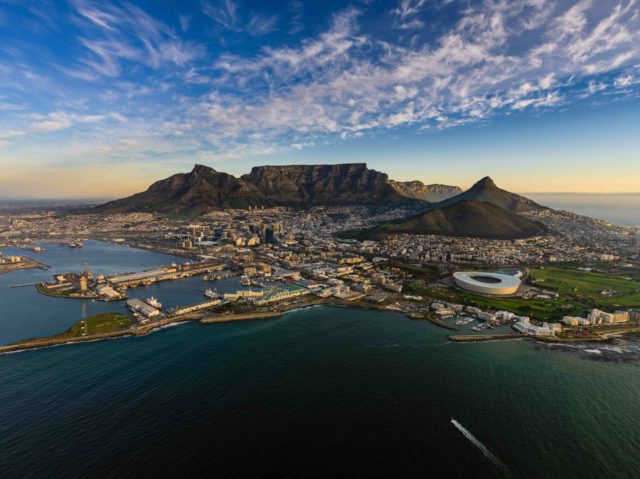The City of Cape Town in South Africa is telling some residents to boil water if it appeared discolored, after repeated power failures affected a local water plant’s ability to process sludge, and scarce energy was devoted to primary water treatment.
The warning is the latest manifestation of South Africa’s ongoing power crisis, as the country endures “load shedding” — periods of electricity loss for up to hours at a time due to a lack of capacity at the state-owned power company, Eskom.
Two decades ago, Eskom was one of the leading power companies in the world. It produced the world’s cheapest electricity, exported power to other African countries, and was considered a candidate for privatization to attract foreign investment.
But after aggressive affirmative action policies saw qualified engineers replaced with ruling party cronies, and corruption caused the company to lose money that would otherwise have been spent on maintenance and expansion, Eskom is failing.
This winter, South African consumers have endured daily power outages, which have been only slightly less severe in Cape Town, where a nearby hydroelectric dam allows the city to generate additional power during periods of Eskom outages.
The lack of electricity has affected water supplies, notably in the Eastern Cape, where borehole pumps have failed in power outages, leaving residents dry for days, even weeks. Now, the Daily Maverick notes, Cape Town has been affected as well:
The City of Cape Town (CoCT) has issued a precautionary notice for parts of the metro that is experiencing discoloured water as a result of a fault at one of its water treatment facilities.
According to a statement, “ongoing load shedding has had a detrimental effect on the City of Cape Town’s water supply”, affecting water quality that has not been able to be treated due to a lack of energy to operate the water treatment facility.
Faure Water Treatment Plant, the affected facility, has experienced a process control fault; a consequence of the current bouts of rolling blackouts. The City said the rolling blackouts had resulted in limited operational hours for sludge processing, and that a generator could not be used due to high energy demand to treat the water.
Cape Town and Johannesburg have both announced that they will turn to private companies to provide power, though the country’s participation in the Paris Climate Accords means that coal, while plentiful, will not be among the new sources.
Many states in the U.S. are facing the prospect of electricity shortages because of a rush to invest in “green” energy sources and to shutter fossil fuel and nuclear plants. States as disparate as California and Texas have experienced blackouts.
Joel B. Pollak is Senior Editor-at-Large at Breitbart News and the host of Breitbart News Sunday on Sirius XM Patriot on Sunday evenings from 7 p.m. to 10 p.m. ET (4 p.m. to 7 p.m. PT). He is the author of the recent e-book, Neither Free nor Fair: The 2020 U.S. Presidential Election. His recent book, RED NOVEMBER, tells the story of the 2020 Democratic presidential primary from a conservative perspective. He is a winner of the 2018 Robert Novak Journalism Alumni Fellowship. Follow him on Twitter at @joelpollak.

COMMENTS
Please let us know if you're having issues with commenting.